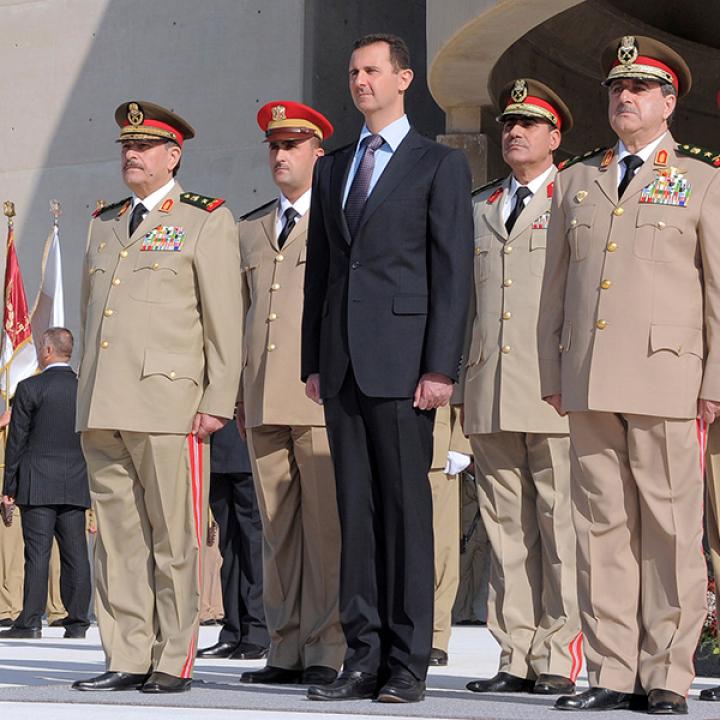

How will the end come for Assad's crippled regime?
Like Shakespeare's Richard II, Bashar al-Assad is a doomed monarch. The failure of his polices and the failures of his men have set the regime on an accelerating path to destruction.
There is no question that the regime has fought back hard against the powerful revolutionary currents it evoked. But its choice of violence from virtually day one of the rebellion set it on a course that would ultimately produce its destruction. A peaceful or negotiated solution was neither sought nor desired by the regime. Assad and his cohorts bet that the security structures his father created and he nurtured could crush the opposition. These structures proved inadequate for the task.
The Assad regime is caught in potent forces that it cannot hope to escape. Its military is being ground down by constant battle with the rebels. Regime forces are beginning to look and act like they are nearing defeat. They appear to be losing the will to attack, and to some extent even defend. The armed opposition elements are gaining strength in men, weapons, and the all-important factor of will. Despite increasing casualties of their own, they appear willing, in many cases eager, to fight. Throughout the country, the regime's hold is weakening or has already vanished under pressure from the rebels.
This decline can be seen most readily in the regime's growing reliance on air and artillery operations, and in its failure to defend or rescue key positions subjected to siege and assault. It now appears incapable of massing large forces, unlike earlier stages in the war when it could marshal several tens of thousands of troops for an operation.
Assad appears doomed, but when and how will this be realized? It is unlikely to be in the form of some grand climatic battle; more probably it will transpire like the fall of Tripoli and the pursuit of the Libyan dictator. Or perhaps it will be more like the slow closing of the ring around the bunker in Berlin, and the descent into fantasy by family members, extreme loyalists, and those who waited too long to escape. It will not necessarily proceed in a straight line. The tides of battle do not run only in one direction, and the regime may even score successes here and there in the fighting.
Can the regime do anything to arrest or reverse its downward direction? It seems unlikely. It could resort to chemical weapons as defeat nears and desperation rises. Is a regime that has already killed tens of thousands going to reject the use of gas weapons to stave off defeat, if even for only a while? Resorting to CW is not a sure thing; if the international community were to respond with force, that would likely hasten the fate of the regime. Still Assad could try it, banking that the failure of the world to respond with force to other cases in which he dramatically escalated violence against the civilian population would be repeated.
Jeffrey White is a defense fellow at The Washington Institute and a former senior defense intelligence officer.
Foreign Policy



